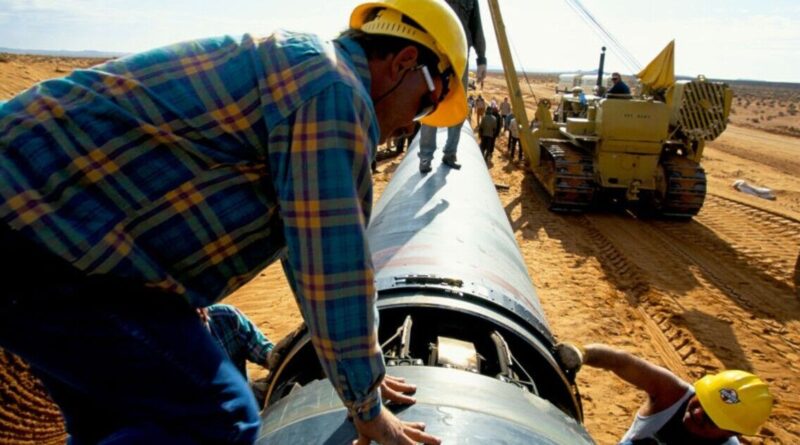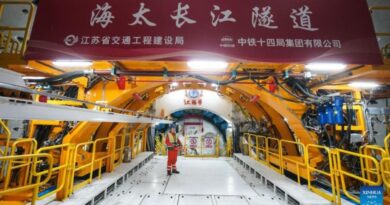Africa: The £10bn pipeline over 2,500 miles long that’s crossing world’s biggest desert | World | News
Africa is investing billions into its energy infrastructure as countries look to boost their economies.
Many ambitious plans are being developed that will transform the energy landscape on the continent.
Last year, around US$110 billion (£87bn) was invested in energy across Africa, with nearly US$70 billion (£56bn) going to fossil fuel supply and power.
One project currently under development is the Trans-Saharan Gas Pipeline (TSGP), that is expected to cost US$13 billion (£10bn).
The pipeline is set to run from Nigeria’s resource-rich fields in the Warri region through Niger and to the town of Hassi R’Mel in Algeria.
It will have the capacity to deliver 30 billion cubic metres of natural gas per year.
The TSGP will leverage a large network of oil pipelines in both West and North Africa, including the Maghreb-Europe Gas Pipeline and the Medgaz Gas Pipeline.
Its total length is expected to measure 4,128 kilometres (2,565 miles) and will cross the world’s largest hot desert – the Sahara.
The pipeline will be built and operated via a partnership between the Nigerian National Petroleum Company (NNPC) and Algeria’s state-owned Sonatrach.
A roadmap for the pipeline’s construction has already been agreed, which is scheduled to become operational by 2030.
The pipeline provides an opportunity to tap into gas-hungry European markets, while monetising their respective natural resources.
Nigeria and Algeria are poised to become the main drivers of gas supplies to Europe in the coming years, according to a 2023 report by the African Energy Chamber.
The Trans-Saharan Gas Pipeline also has the potential to increase energy security in West Africa by ensuring supply and reducing its reliance on imported gas.
Its construction is not without its controversies and is opposed by a Nigerian militant group – the Movement for the Emancipation of the Niger Delta (MEND), which among over issues is fighting to protect the local environment from oil exploitation.
The group has warned that “any money put into the project will go down the drain.”





